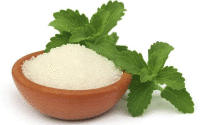Breakfast Teas: Perk Up Your Mornings with a Flavourful Cup of Tea
Are you looking for something aside from coffee to wake you up in the morning? Or maybe something to power you through a long day and into the night without giving you the jitters? Breakfast teas can be a great way to increase energy and alertness while offering a plethora of health benefits. A hearty tea blend for breakfast can get your day off to a good start, and energising herbal varieties can be a great boost option that won’t keep you up all night.
Is It Good to Drink Tea for Breakfast?
First things first: tea naturally contains caffeine, giving you a boost of energy in the morning to get you going. While coffee has just one distinct flavour, and you can’t do much about that if you don’t like it, you can enjoy tea in various ways. You can brew a hot mug of tea on a chilly day or a cold iced tea on a hot day.

Finding a cup of tea that suits your preferences is much simpler since there is a variety of tea for breakfast available, including black tea, green tea, and endless flavour blends, such as English breakfast.
Many people think tea and coffee can cause you to become dehydrated, but that’s not true. Although studies have shown that caffeine has a mild diuretic effect, it doesn’t elevate the risk of dehydration. Instead, tea helps you rehydrate and even gives you some nutrition in the morning, though it shouldn’t be a replacement for a nutritious breakfast. So the best way to start your day is with a delicious cup of energising tea and a balanced breakfast.
The lower caffeine percentage makes breakfast teas a better pick-me-up solution; a regular cup of tea contains less caffeine than a regular cup of coffee, excluding some highly caffeinated tea blends.
Studies have shown that coffee notably increases your blood pressure and levels of cortisol and epinephrine, heightening your stress reaction and even contributing to an increased risk of heart disease. The study also noted that this response lasts until bedtime, meaning the drink you choose first thing in the morning undoubtedly impacts your productivity for the entire day.
Best Breakfast Teas
English Breakfast Tea
There’s a good reason English breakfast is a classic. Black teas from India, China, and Africa typically make up this blend, having a robust body and notes of malt and spice. English breakfast is hearty enough to be consumed solely or with milk and sugar.
Aside from its rich aroma and flavour, English breakfast tea holds many health benefits. And that’s another nig reason why many people around the globe choose this tea for breakfast. The black tea in the blend contains antioxidants, such as polyphenols and flavonoids, an amino acid called L-theanine, potassium and magnesium. Consuming all of these contribute to a healthy heart, reducing the risk of coronary diseases and lowering blood pressure and cholesterol levels.
Drinking English breakfast tea regularly also promotes good bacteria growth in the gut and decreases the growth of harmful bacteria due to the polyphenols. It lowers the stroke and cancer risk. The L-theanine helps increase attention to tasks, improving focus and alertness and helping you relax. You can reap all these benefits whenever you drink English breakfast tea as long as you do so in moderation.
Scottish and Irish Breakfast teas are famous alternatives, and so is the Australian Breakfast tea. This intense blend of Australian-grown Nerada tea with a touch of Assam for strength and finely spicy flavour is the Aussie answer to the traditional English Breakfast.
Matcha
Matcha powder is green tea leaves that have been stone-ground into a fine powder from shady green tea plants. A typical matcha drink combines powder and hot water in a bowl, but it also tastes great when blended into drinks like smoothies and lattes and baked goods.

Matcha contains a concentrated amount of the many green tea’s healthy and energising qualities because when you drink it, you’re ingesting the entire tea leaf rather than an infusion of tea leaves. In particular, it contains a lot of caffeine—almost as much as coffee. The shading raises the tea’s caffeine and l-theanine concentrations, producing an energising, stimulating beverage that helps improve clarity and focus.
Pu-erh Tea
Originally from the Pu-erh region of China, Pu-erh Tea is an aged, partially fermented black tea. These aged teas are deep, rich, and decadent, and when brewed, they produce a strong cup of coffee-like deep reddish-black colour. Pu-erh teas are velvety smooth, full-bodied and with a satisfying finish because the ageing process reduces the tannins in the tea. A splash of milk makes for a nourishing and energising cup, and they withstand it well! A cup of this tea has about half the amount of caffeine as a cup of coffee, making it a healthier coffee substitute.
Peppermint Tea
Adding peppermint to both herbal and caffeinated teas can be energising and stimulating even though it has no caffeine. According to research, peppermint stimulates the central nervous system, lessens pain, and enhances focus, all of which help with physical activity and cognitive function. You can enjoy it as a light, cooling herbal tea on its own or add it to various blends to give them a jolting, minty flavour.

Ginger Tea
Ginger gives teas and herbal infusions a pleasantly sweet, spicy flavour used for centuries in herbal and ayurvedic medicine. Studies have proven that ginger boosts cognitive, attention, and energy levels. Ginger is a common ingredient in traditional tea blends, such as herbal and caffeinated chai drinks like Masala Chai and Rooibos Chai.



